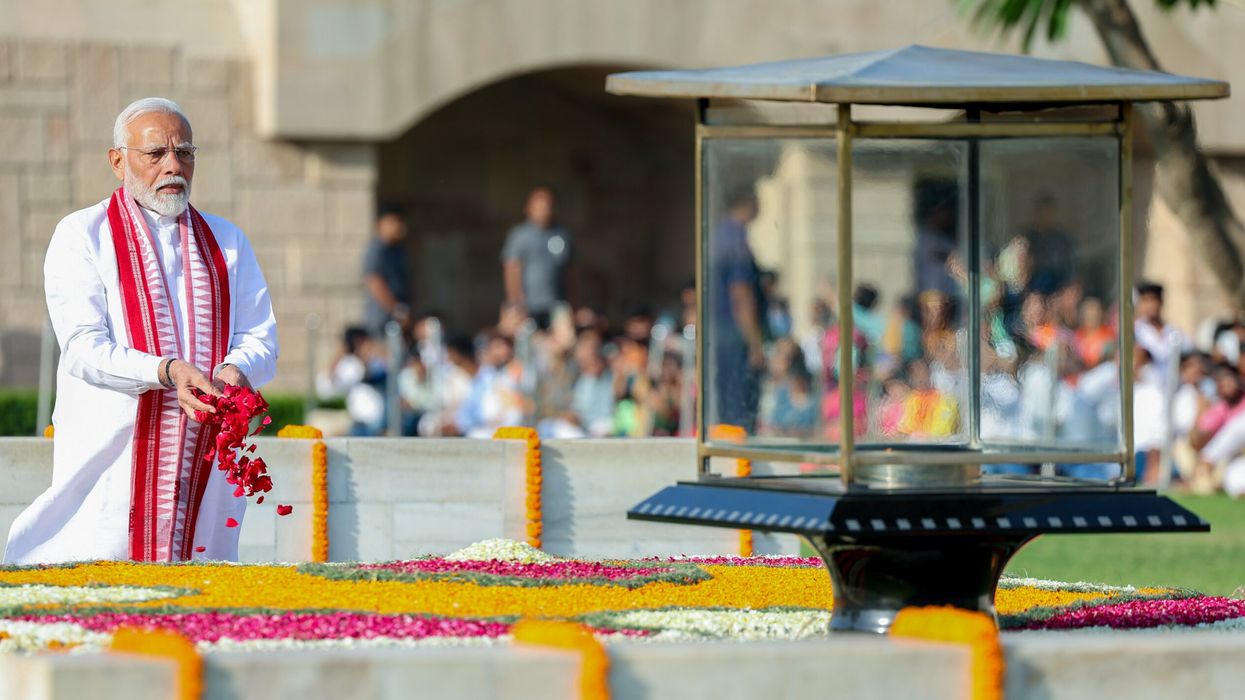INDIA's prime minister Narendra Modi is set to be sworn in Sunday (9) for a third term after worse than expected election results left him reliant on coalition partners to govern.
With Modi yet to announce the makeup of this cabinet, the ceremony at the presidential palace on Sunday evening (13:45 GMT) will be keenly watched when some 30 ministers-to-be also take the oath on the constitution.
Modi's Bharatiya Janata Party (BJP) ruled outright for the past decade but failed to repeat its previous two landslide wins this time around, defying analysts' expectations and exit polls.
He was instead forced into quick-fire talks with the 15-member coalition, the National Democratic Alliance (NDA), which guaranteed him the parliamentary numbers to govern.
Larger coalition parties have demanded hefty concessions in exchange for their support.
The Hindustan Times described days of "hectic talks", while the Times of India said the BJP had sought to "pare down" their partners' demands.
It is widely reported that the Telgu Desam Party (TDP), the largest BJP ally with 16 seats, has extracted four cabinet positions.
The next biggest party, the Janata Dal (United) with 12 seats, has negotiated two.
Modi's previous cabinet had 81 ministers.
But Indian media reported widely that the top jobs including the four most powerful posts of the home, foreign, finance and defence would remain in the BJP's grip.
"Key ministries like home, defence, finance, and external affairs are off-limits," the Times of India reported.
It suggests that top Modi aides Amit Shah, Rajnath Singh and Nitin Gadkari -- home, defence minister and transport ministers respectively -- will be in the new team.
Analysts said that the coalition will shift parliamentary politics and force Modi's once domineering BJP into a somewhat more conciliatory approach.
"In the past, the BJP has had confidence because of its sheer majority," said Sajjan Kumar, head of the Delhi-based political research group PRACCIS.
"The coalition will now force the BJP to engage in more consultation."
Zoya Hasan of Jawaharlal Nehru University said Modi faced potential challenges ahead -- warning he may be "meeting his match" in the "crafty politicians" of the TDP's Chandrababu Naidu and JD(U)'s Nitish Kumar.
Security was tight in the capital New Delhi on Sunday, with thousands of troops and police deployed as regional leaders flew in.
Bangladeshi prime minister Sheikh Hasina and Sri Lankan president Ranil Wickremesinghe -- as well as leaders including those of Bhutan, Nepal and the Maldives -- are to due to attend the ceremony and following state banquet.
Neighbouring rivals China and Pakistan are notably absent in not sending a top leader.
Modi on Sunday laid flowers at the memorial to father of the nation Mahatma Gandhi, before he paid his respects at the national war memorial.
Modi's chief rival, Rahul Gandhi, was nominated on Saturday (8) to lead India's opposition in parliament, after he defied analysts' forecasts to help the Congress party nearly double its parliamentary numbers.
It was Congress's best result since Modi was swept to power a decade ago, rescuing the party from the political wilderness.
A meeting of the Congress leadership on Saturday voted unanimously to recommend Gandhi's election as India's official opposition leader, a post that had been left vacant since 2014.
Gandhi is the scion of the dynasty that dominated Indian politics for decades and is the son, grandson and great-grandson of former prime ministers, beginning with independence leader Jawaharlal Nehru.
If elected, as expected, he will be recognised as India's official opposition leader when the new parliament sits, which local media reports suggest will happen as soon as early next week.
Parliamentary regulations require the opposition leader to come from a party that commands at least 10 percent of the lawmakers in the 543-seat lower house.
The post has been vacant for 10 years because two dismal election results for Congress -- once India's dominant party -- left it short of that threshold.
(AFP)





